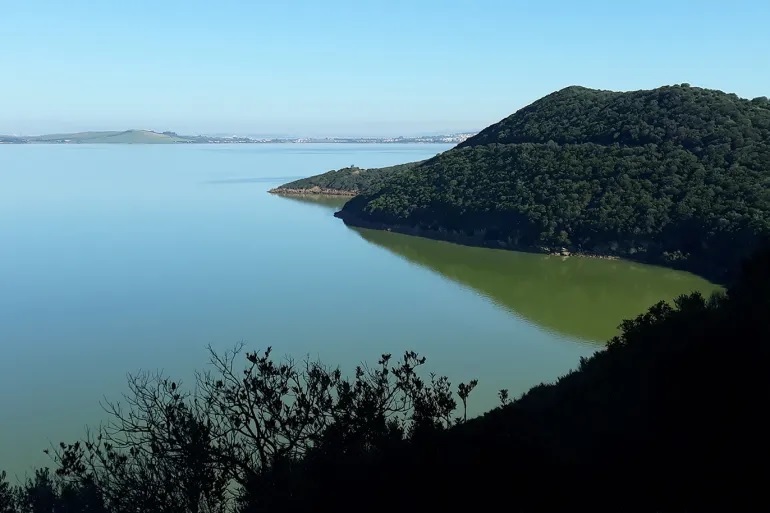Work is ongoing to implement the pollution control program for Lake Bizerte, a program described as « unique in the Mediterranean basin, especially as it is being implemented in a residential and industrial area, » according to the Minister of the Environment, Leila Chikhaoui.
She confirmed in a statement to « African Manager » that the implementation of such projects on the ground requires significant financial allocations. In this context, she explained that the funding comes from the European Union, the European Investment Bank, and another party in the form of a grant.
However, the minister mentioned the difficulty of implementing the program due to the overlap of multiple parties such as the ministries of Industry, Agriculture, Environment, and industrial companies.
All phases of the program are expected to be completed by 2026, the minister predicts, announcing the scheduling of other projects in other areas that also suffer from pollution problems.
Lake Ichkeul is a lake located in the eponymous national park, connected to the Mediterranean Sea by the Bizerte lagoon, covering an area of 12,600 hectares.
Six valleys flow into it, providing six main types of freshwater from Lake Douimis, Lake Sejnane, Lake Mallah, Lake Ghezala, Lake Joumine, and Lake Tinja, representing a high percentage of water in the lake and a decrease in salinity.
On the other hand, in summer, the lake’s salinity rises to over 50 g/l due to the lack of water flowing into it, high evaporation rates, and the entry of salty water from the Bizerte side.
Lake Ichkeul has been classified as a UNESCO World Heritage Site, and Tunisia has designated it as a nature reserve, serving as a habitat for rare fish and around 200,000 birds.
€80 million mobilized
The president of the Target Management Unit for the implementation of the integrated pollution control program for Lake Bizerte, Dhekra Gharbi, indicated that the total value of the project is estimated at €80 million. Its goal is to preserve the ecosystem of Lake Bizerte by addressing pollution sources in the region.
A study elaborated in this regard aims to analyze and assess the risks related to climate impacts on the lakes of Bizerte and Ichkeul to propose the most important strategic orientations necessary to improve the adaptation of this ecosystem and its social and economic activities to expected climate changes, such as the increase in the global average temperature, which could rise from 1.8 to 2 degrees Celsius by 2070, with disruptions in precipitation during the rainy months of 30 to 40 percent in 2070.
Furthermore, according to the studies conducted, sea levels will rise in the coming years, accompanied by coastal erosion and water salinization, especially on the coastal strip, where sea level elevation maps show that the most vulnerable areas are in several zones of Bizerte, such as the southern part of Lake Achal, the Menzel Bourguiba area, Menzel Jamil, and Lake Joumine.


